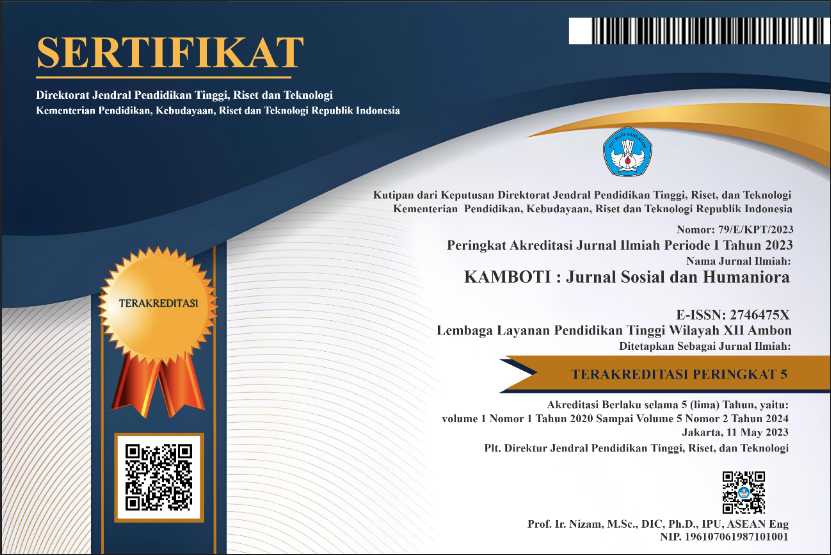Women in Sustainable Education: Glass Ceiling among Female Schools Principals in Indonesia
DOI:
https://doi.org/10.51135/kambotivol2issue1page1-15Keywords:
Educational Leadership, Women, SDGs, Glass-Ceiling, PAR ModelAbstract
Sex segregation remains happening in the education realm. In the 21st century, Indonesian women's participation in the public sphere still becomes an issue, especially leadership. Women are perceived as the second class of society, even obtaining the negative stereotype of incapable leaders, which the myth of leadership belongs to men's world. As an oxymoron, women are "freely binding," meaning they can be involved in the public sphere. However, they are encountering "glass-ceiling" to be in the top position, especially in rural West Java, where women have been perceived for their physical appearance-minded rather than the capability of leadership. The proposition of women principals in compulsory education in Indonesia is underrepresented compared to men principals with 38.68 percent and 61.32 percent. Women are capable of a good leader who has leveraged their subordinates through positive relationships, empowering others,and improving schools. Therefore, women empowerment is essential to achieving sustainable education under SDG Priority 4 Quality of Education and SDG Priority 5 Gender Equality. This study aims to analyze the presence of women school principals' "status quo" and "glass-ceiling" in Indonesia by utilizing the PAR gender model of Blaikie et al. (2003), consisting of three factors; root causes, dynamic pressures, and unsafe condition. Hence, this study will be able to offer policy recommendations on women's leadership empowerment. This research used the exploratory approach by investigating sixteen school principals of elementary education and literature reviews, such as research reports and academic articles related to women leaders in education. This study found that Indonesian women in the educational realm have dealt with the glass ceiling deriving from root causes on power and structure. Meanwhile, dynamic pressures are knowledge dissemination and the unsafe condition on economic imbalances and discrimination on welfare and social protection, which becomes a sustainable threat and negatively affects the 2030 Agenda for Sustainable Development.
Downloads
Published
10-10-2021
Issue
Section
Articles
License
Copyright (c) 2021 KAMBOTI: Jurnal Sosial dan Humaniora

This work is licensed under a Creative Commons Attribution-ShareAlike 4.0 International License.
How to Cite
Juwitasari, R. (2021). Women in Sustainable Education: Glass Ceiling among Female Schools Principals in Indonesia. KAMBOTI: Jurnal Sosial Dan Humaniora, 2(1), 1-15. https://doi.org/10.51135/kambotivol2issue1page1-15



